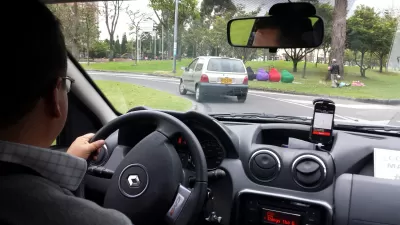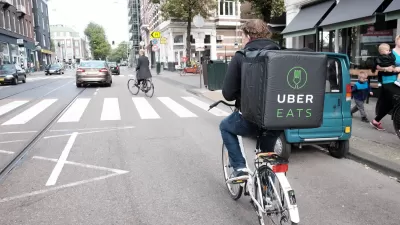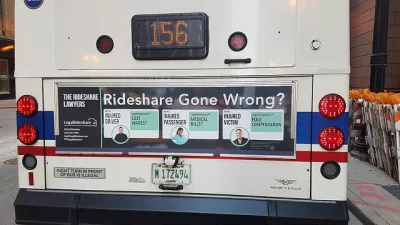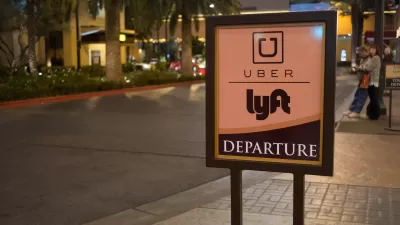"If the 20th century was devoted to building the infrastructure to service the personal automobile, then perhaps the 21st century will be devoted to undoing most of it."

Patrick Russell makes a compelling case for the growth of ride-sharing services like Uber and Lyft.
Income savings
Recent data reveal that when Americans have more money in their pockets, they often spend it on higher-quality gasoline. AAA estimates that the typical two-car household stands to save 16 percent of their income by ditching one car. What about the cost of ride-sharing services? Stefan Heck and Matt Rogers claim in their book Resource Revolution that American households pay roughly $8,700 per year on their cars, but that these cars typically remain parked in the driveway 96 percent of the time.
Energy efficiency
One study found that one ride-share car can replace between 9 and 13 personal cars. Furthermore, the fuel economy of ride-share cars is typically better than the average personal vehicle. (Uber drivers tend to drive practical sedans rather than luxury SUVs or sports cars, but as the collaborative economy expands, it’s not hard to imagine expanded choice for those willing to pay for luxury.)
Productive land use
That's not only less cars on the road, but also significantly less cars parked on the street and in parking lots. Russell imagines the possibilities.
"Imagine that every single road wider than 4 lanes was given a road diet by city planners and transportation engineers. Rights-of-way could be returned or resold to businesses that face the roadways; promenades for pedestrians could be widened and lined with trees; housing could be added to the right real estate market of major cities. Indeed, a six-lane highway could be trimmed to a 2-lane roadway with a turn lane, bicycle lanes and sidewalks — and still leave enough room for the development of row houses along the edge."
Future demand
Russell points out that millennials prefer to spend their money on experiences—not consumer goods. The 18-year old of generations past may have dreamed of a souped-up sports car; today’s 18-year old dreams of where it can take her.
FULL STORY: Ride Sharing Will Give Us Back Our Cities

Alabama: Trump Terminates Settlements for Black Communities Harmed By Raw Sewage
Trump deemed the landmark civil rights agreement “illegal DEI and environmental justice policy.”

Planetizen Federal Action Tracker
A weekly monitor of how Trump’s orders and actions are impacting planners and planning in America.

The 120 Year Old Tiny Home Villages That Sheltered San Francisco’s Earthquake Refugees
More than a century ago, San Francisco mobilized to house thousands of residents displaced by the 1906 earthquake. Could their strategy offer a model for the present?

Ken Jennings Launches Transit Web Series
The Jeopardy champ wants you to ride public transit.

BLM To Rescind Public Lands Rule
The change will downgrade conservation, once again putting federal land at risk for mining and other extractive uses.

Indy Neighborhood Group Builds Temporary Multi-Use Path
Community members, aided in part by funding from the city, repurposed a vehicle lane to create a protected bike and pedestrian path for the summer season.
Urban Design for Planners 1: Software Tools
This six-course series explores essential urban design concepts using open source software and equips planners with the tools they need to participate fully in the urban design process.
Planning for Universal Design
Learn the tools for implementing Universal Design in planning regulations.
Clanton & Associates, Inc.
Jessamine County Fiscal Court
Institute for Housing and Urban Development Studies (IHS)
City of Grandview
Harvard GSD Executive Education
Toledo-Lucas County Plan Commissions
Salt Lake City
NYU Wagner Graduate School of Public Service





























